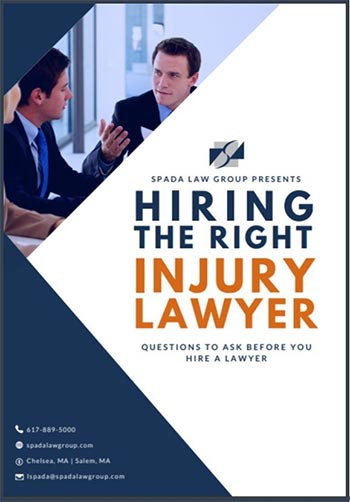
There are many activities we participate in for recreation that require us to sign a liability waiver before we can participate. In my own life I can come up with several examples such as skydiving, snowmobile rentals, go-cart driving, and zip-lining. Each of these activities has inherent risks associated with them and each company providing these activities required me and my family to sign a waiver before we could participate. Fortunately, neither I nor any family members have ever been injured while enjoying any of these activities but as a personal injury lawyer I have encountered clients who have. Are these waivers legal? Most of the time yes. Figuring out when they don’t require a careful review of the waiver, the circumstances under which it was signed, and the nature of the alleged negligence involved.
THE LAW OF LIABILITY WAIVERS
Under Massachusetts law, signing such waivers generally (and I stress the word generally), precludes somebody from pursuing an ordinary negligence claim against the company or individual providing the service or equipment involved in the activity. Our courts have shown a consistent willingness to allow people to voluntarily give up their right to sue for ordinary negligence in exchange for the ability to participate in an inherently dangerous activity.
THE EXCEPTIONS TO THE LAW OF LIABILITY WAIVERS
Every rule has its exceptions and the rule on waivers is no different. One notable exception which was enacted into law is that gyms and fitness centers cannot rely for protection on such waivers. The law states that “No contract for health club services may contain any provisions whereby the buyer agrees not to assert against the seller or any assignee or transferee of the health club services contract any claim or defense arising out of the health club services contract or the buyer’s activities at the health club”.
Also, if the waiver was obtained by fraud or coercion a court will likely deem it to be unenforceable. Finally, a waiver cannot provide protection from an act deemed to be a violation of a law. Although Massachusetts law has favored the enforcement of such waivers for ordinary negligence, a party cannot protect itself from liability for grossly negligent acts or reckless acts. So, a careful examination of the facts of each case is critical.
WHAT IS GROSS NEGLIGENCE
Our courts have stated that gross negligence is “an act or omission respecting legal duty of an aggravated character as distinguished from a mere failure to exercise ordinary care.” “Gross negligence is substantially and appreciably higher in magnitude than ordinary negligence.... It is very great negligence, or the absence of slight diligence, or the want of even scant care.... Gross negligence is a manifestly smaller amount of watchfulness and circumspection than the circumstances require of a person of ordinary prudence.” “Momentary inattention in a situation of “great and immediate danger” may constitute gross negligence. “
As you can see, the analysis as to what constitutes gross negligence is nuanced, fact specific and highly legalistic. It is a legal conclusion that should not be drawn without the assistance of a thorough investigation and an experienced injury attorney.
YOU SIGNED A WAIVER. YOU GOT HURT. THE BOTTOM LINE.
If you signed a waiver prior to participating in an activity and you were injured during that activity due to the business’ ordinary negligence there is a chance the waiver you signed will prevent you from recovering damages. If your injury however was the result of gross negligence, or you were fraudulently induced to sign the waiver, you may be able to avoid the waiver and pursue a claim. Obviously, you should consult with an experienced injury lawyer to determine whether you have a valid claim or not. This is not the type of legal analysis that you should be making on your own as you may incorrectly assume you do not have a claim and mistakenly give up your legal right to compensation. That is EXACTLY what these businesses are hoping you will do.
What You Should Do if You Have Been Injured but Signed A Waiver
Get good advice as soon as possible. Activities that require a waiver be signed are usually activities that have some inherent danger. These activities can often result in very serious injuries when businesses do not adhere to strict safety procedures. The best thing you can do if you are injured and want to be fairly compensated is to understand your legal rights before you make any decisions. Before you speak to an insurance company adjuster, sign or submit any paperwork or hire a lawyer, you owe it to yourself to get as much information as you can, so you can make a smart decision on what you need to do next. At Spada Law Group, we offer free consumer guides and videos that answer many of the questions car accident victims have. Take a look, download



